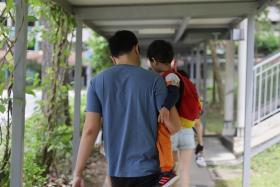Proposed law seeks to fight foreign meddling in Singapore politics
Bill aims to provide Govt with tools such as the power to compel social media services to disclose user info
New powers to counter foreign attempts to influence domestic politics, incite social tensions or sway key national decisions have been tabled in a new Bill introduced in Parliament yesterday.
The Foreign Interference (Countermeasures) Bill will provide the Government with a range of tools to counter the hostile actors.
These include powers to compel Internet and social media service providers to disclose information on users, remove content and block user accounts.
The proposed law will strengthen Singapore's ability to prevent, detect and disrupt foreign interference in its domestic politics, said the Ministry of Home Affairs (MHA). The meddling could, for example, be conducted through hostile information campaigns and the use of local proxies.
Individuals and groups directly involved in Singapore's political processes will be designated as politically significant persons, who will be subject to measures to mitigate the risk of foreign interference.
The proposed law will require political parties, politicians, election candidates and their election agents to declare any foreign affiliation.
The ministry noted that foreign interference and hostile information campaigns pose a serious threat to Singapore's political sovereignty and national security.
"We are strengthening our detection and response capabilities, as well as Singaporeans' ability to discern legitimate and artificial online discourse.
"To complement these efforts, our laws need to evolve, just as other countries have introduced new laws to tackle foreign interference."
The proposed legislation will, among other things, allow the Government to obtain information on foreign interference operations, prevent harmful online communications and swiftly block or contain the spread of such activity.
The authorities can also designate individuals or organisations that may become targets of foreign influence, compel them to regularly disclose relevant information and obtain information on foreign interference operations.
Singapore has not been immune to such attempts at interference, noted MHA.
It cited how in the 1980s, a first secretary at the US Embassy in Singapore, Mr Hank Hendrickson, had cultivated a group of local lawyers to join opposition politics and contest the 1988 General Election. These lawyers were offered funding and one of them, Mr Francis Seow, was offered refuge in the US should he run into difficulties. He was later given US citizenship.
MHA also cited efforts to spread scepticism of Western-developed Covid-19 vaccines, and the abnormal spike in online comments by anonymous social media accounts that were critical of Singapore when the Republic faced bilateral issues with another country in late 2018 and 2019. It added that appeals against directions issued under the proposed law can be made and will be heard by an independent reviewing tribunal.
FOR MORE, READ THE STRAITS TIMES
Get The New Paper on your phone with the free TNP app. Download from the Apple App Store or Google Play Store now



